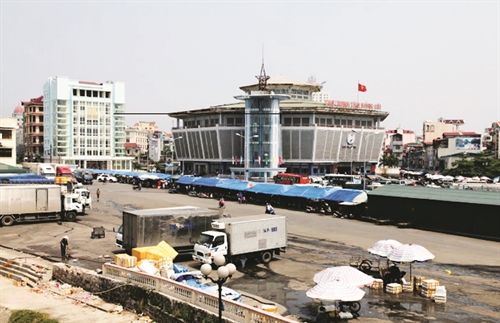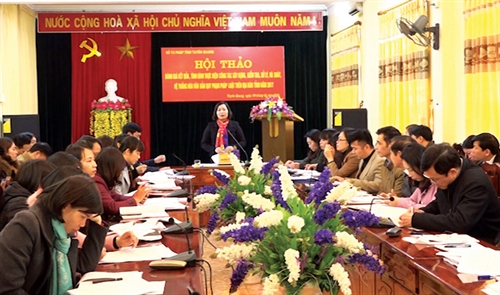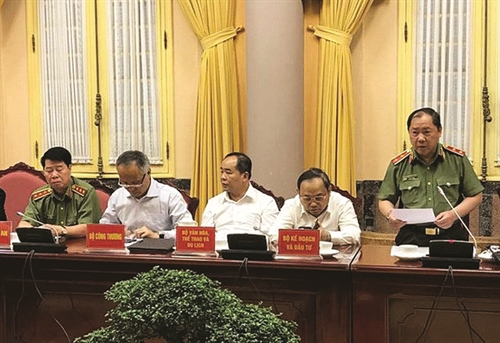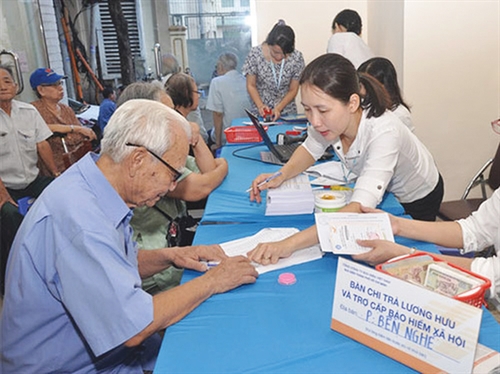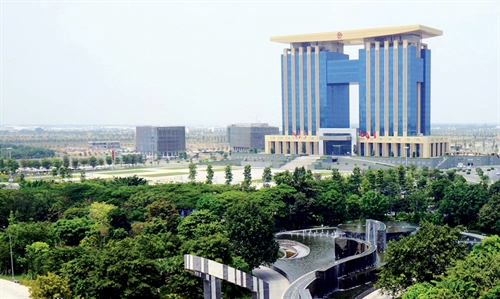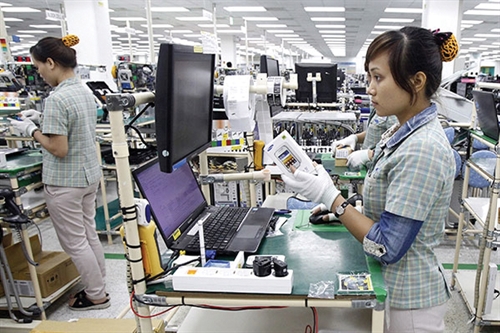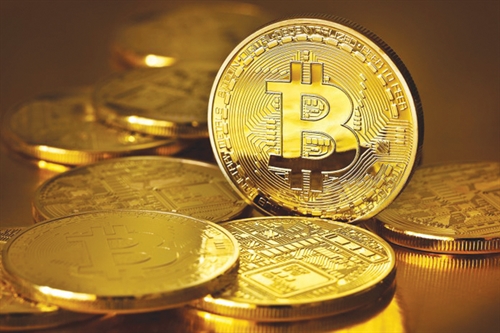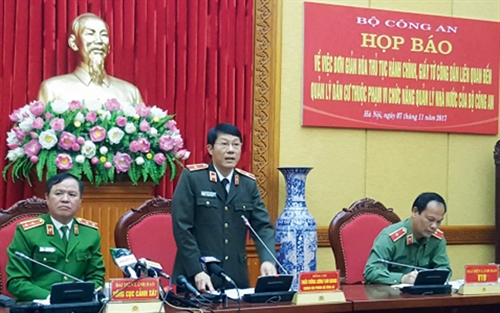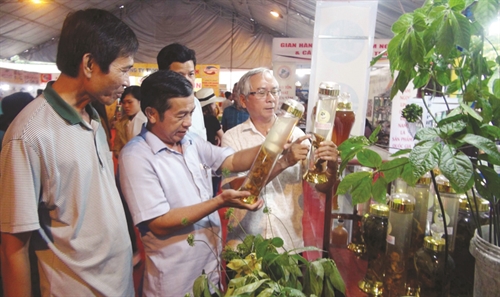The National Assembly Standing Committee adopted last month a resolution increasing the environmental protection tax on petroleum products from January 1 next year.
Accordingly, the environmental tax on gasoline will be increased by VND 1,000 (4 US cents) to VND 4,000 per liter. Diesel oil will see a tax increase by VND 500 per liter to reach VND 2,000. Kerosene will be taxed at the rate of VND 1,000 per liter, a VND 700 higher than the current level. Meanwhile, the tax on other oil products, including fuel oil, lubricants and greases, will be raised by VND 1,100 per liter to VND 2,000.
Along with petroleum products, the environmental tax on other items that damage the environment such as pit coal, plastic bags, herbicides, termiticides, and some types of disinfectants restricted from use, will also be set to rise.
Why the environmental tax has to go up?
Explaining about the necessity to increase the environmental tax, the Ministry of Finance, the drafter of the Resolution, said such a tax hike will encourage the economical use of products that cause pollution while promoting the consumption of eco-friendly ones. Particularly, the rising environmental tax on petrol and oil products will help “rationally mobilize social contributions to the state coffers for the performance of socio-economic development tasks, including also those related to environmental protection.”
However, environmental protection did not seem to be the only reason behind the tax hike.
In fact, petroleum products have become a major revenue source of the country with proceeds from import duty on petrol and oil now accounting for around 7 percent of the State’s income. Statistics released by the General Department of Customs showed that in the first eight months of 2018, oil and petrol product imports reached 8.63 million tons, while the import value stood at USD 5.74 billion, an increase of 27.3 percent over the same period of last year.
Nevertheless, this revenue source is now on the decrease as import duty rates on petroleum products have reduced considerably over the last few years due to the country’s tariff commitments.
Vietnam is now offering the most-favored-nation import duty rates to all WTO members under which the maximum duty rate applicable to petrol is 40 percent. Particularly for exporters from ASEAN countries, since 2012, the preferential import duty rates of 20 percent, 10 percent, 7 percent, 5 percent, and 0 percent have been applied to petrol, jet fuel, kerosene, diesel oil, and fuel oil, respectively. Meanwhile, exporters from the Republic of Korea have enjoyed the preferential duty rate of 10 percent for petrol and 5 percent for oil since 2016. These preferential tariffs will be gradually reduced to 0 percent.
As reported by the Thoi bao Tai chinh (Financial Times) online, the proceeds from import duty on petroleum products have sharply reduced from VND 53 trillion (USD 2.3 billion) in 2015 to VND 14.1 trillion (USD 613 million) in 2017 and is estimated to further drop to VND 10.3 trillion (USD 448 million) this year.
Against the backdrop of decrease in revenue from import duty, the environmental tax will undoubtedly need to go up to balance the state budget. It is estimated that the tax increase would annually bring about more than VND 15.7 trillion (USD 672 million) to the state coffers.
“The Ministry of Finance is now in a fix. As we lack money, we need to increase tax,” economist Luu Bich Ho was quoted by the local newswire Dan Tri as saying.
The Ministry of Finance also pointed out that the retail prices of petrol and oil products in Vietnam are much lower than those in neighboring countries, the region and the world.
According to the Global Petrol Prices ranking for September 10, 2018, Vietnam ranked 49th in low-to-high order amongst 167 countries in petrol retail selling price.
“Compared to Vietnam, many countries like Brazil, China, India, Canada and Norway set higher retail selling prices of petrol though they have larger oil reserves and greater commercial exploitation outputs,” the Ministry of Finance reported.
Little attention has been paid to the increase in the environmental protection tax on non-biodegradable plastic bags, one of the top polluters in Vietnam, from VND 40,000 (USD 1.70) per kg to 50,000 (USD 2.10) also from January 1, 2019. However, according to many economists, Vietnam should take more stringent measures to prevent tax evasion that has caused huge financial losses to the State and limited the effectiveness of the tax.
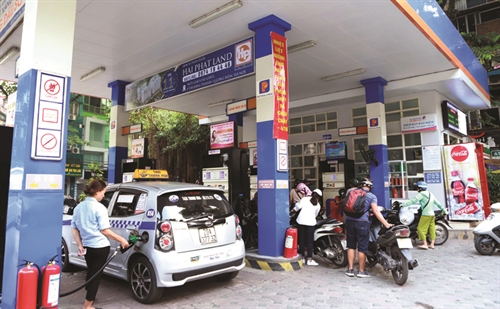 |
| Customers buy petrol at Petrolimex’s filling station No. 4 at Tran Hung Dao street, Hanoi__Photo: Hoang Hung/VNA |
Impacts of the tax hike
The new tariffs are set to come into force from the beginning of next year. So, lawmakers are confident that rising prices of petroleum products probably will not affect the consumer price index (CPI) this year, thus ensuring the fulfillment of the target of keeping the inflation rate at under 4 percent.
But what will be the scenario for the next year?
According to Nguyen Duc Hai, Chairman of the National Assembly’s Finance and Budget Committee, the Committee had measured the impact of increasing the environmental tax on petrol and oil on inflation and believed that the rising price of petroleum would only make CPI increase by 0.07-0.09 percent in 2019 because it was just one of 11 commodities used to calculate CPI.
“The new tax would only push up transport cost by 0.83 percent in the first three months, while power prices would basically be unaffected,” he added.
However, economists and businesses were skeptical about this.
Talking with Dan Tri on the decision to raise the environmental tax, senior economist Le Dang Doanh said such a tax hike will lead to increase in transport charges as well as the production costs of all products and services, thus reducing enterprises’ competitiveness and contributing to a rise in inflation.
“Transport cost is included in the prices of all products and will rise corresponding to petrol price. When petrol price goes up, everything will see an increase in price,” he said.
Nguyen Van Thanh, Chairman of the Vietnam Automobile Transport Association, told the Lao Dong (Labor) online that the tax hike would lead to increase in production cost of transport businesses and consequently force them to raise freight rates.
“If the fuel price in the world market goes up at the time the new tariffs are applied, transport businesses will face huge difficulties,” Thanh worried.
Agreeing with Thanh, Chairman of the Hanoi Supermarket Association Vu Vinh Phu said the increase of environmental tax on petrol and oil will push up transport freights and as a result the prices of essential commodities will rise. “The burden will finally fall on consumers,” he added.
In order to mitigate negative impacts of the new tax policy on the economy, some suggested reducing road tolls, while others proposed provision of support for transportation of agricultural products so as to lessen the load on consumers.
Another matter of concern is how environmental tax revenues will be spent.
National Assembly Chairwoman Nguyen Thi Kim Ngan said all proceeds from the collection of environmental tax should be remitted into the state budget and used for environmental protection work.
“That way, people will see that the money is not spent for other purposes,” she said.
Vietnam gained VND 42.4 trillion (USD 1.84 billion) in revenue from the environmental protection tax in 2016, jumping nearly 57 percent from 2015. During the same period, spending on environmental protection reached just VND 12.3 trillion, making up 29 percent of the tax revenue.- (VLLF)
